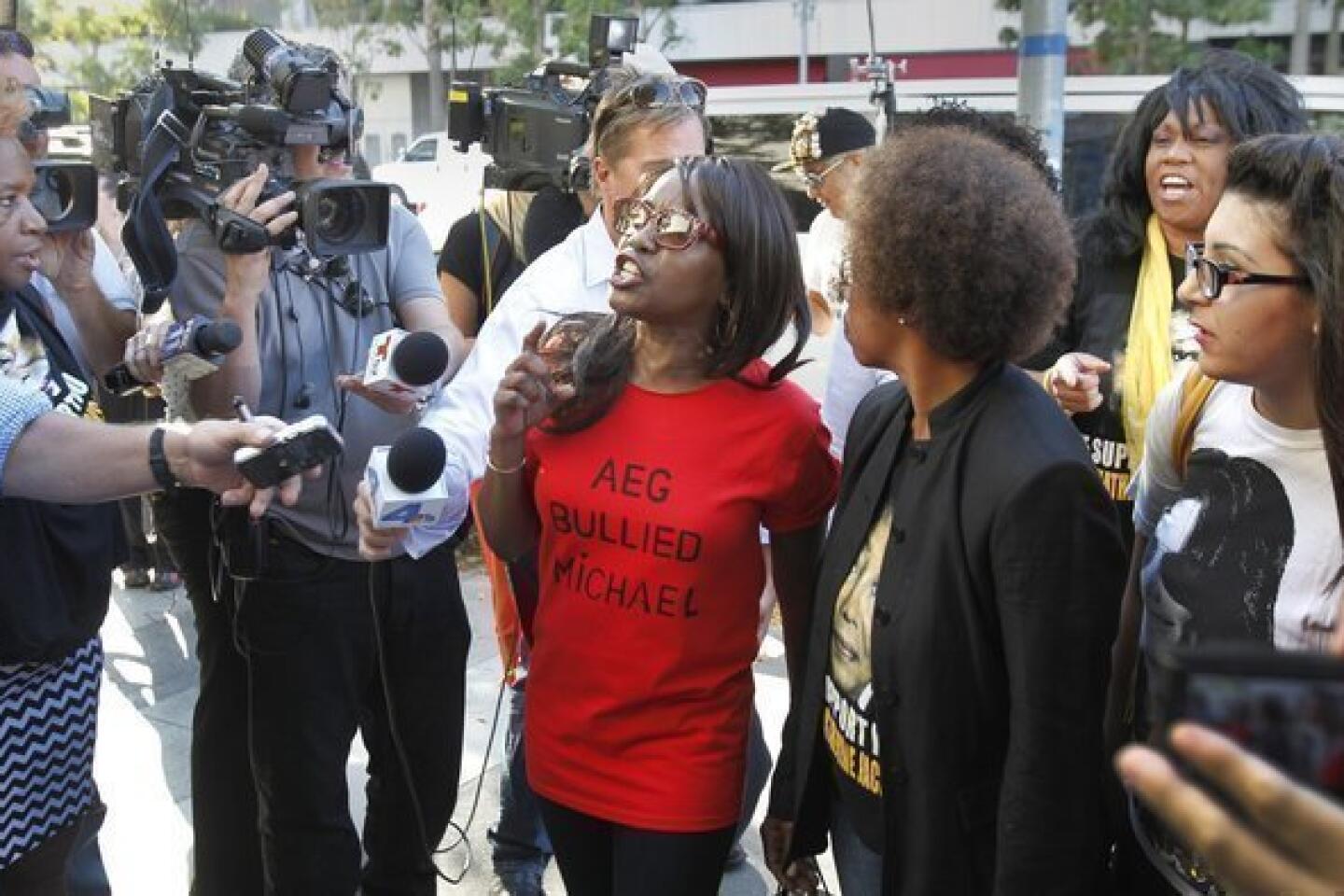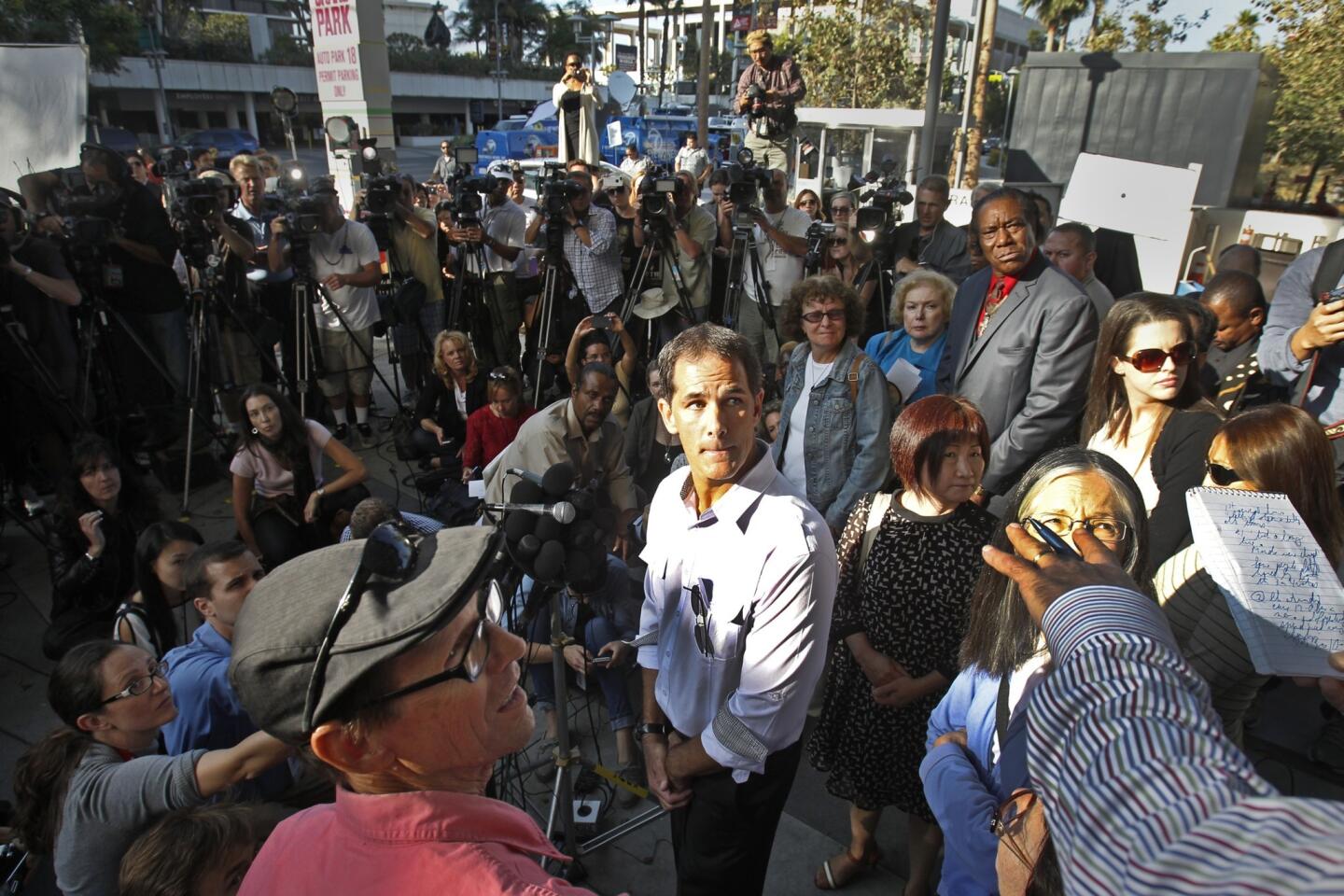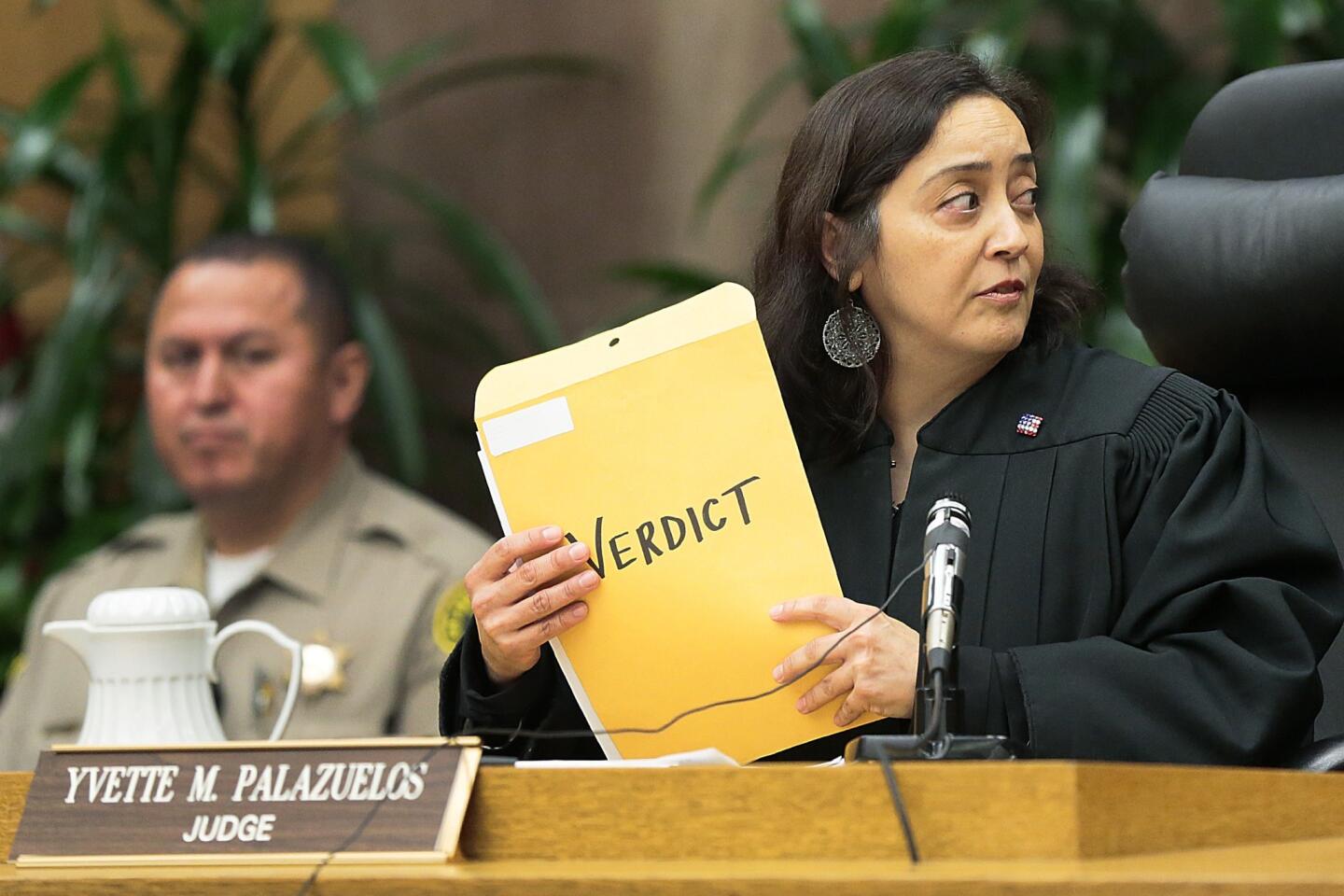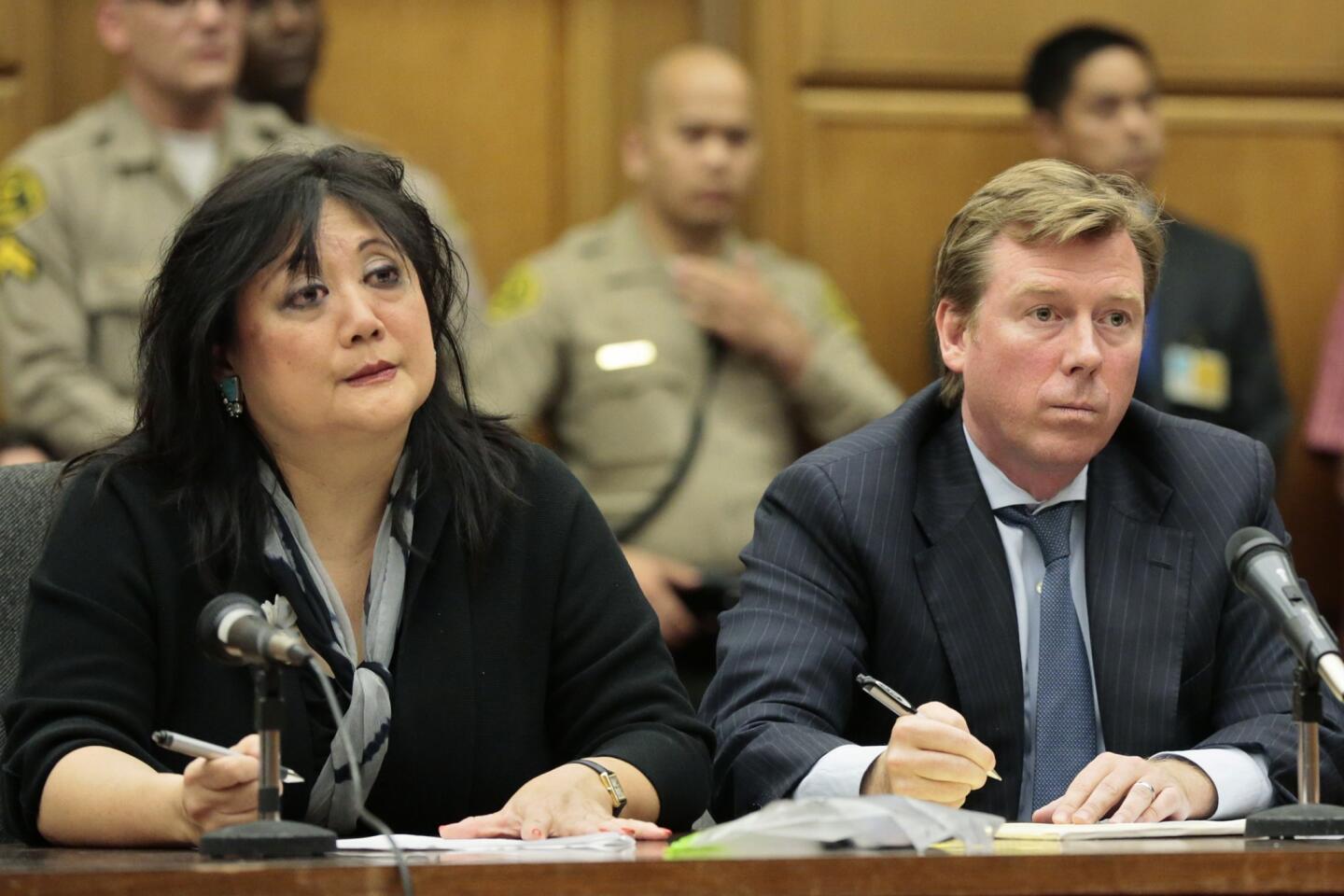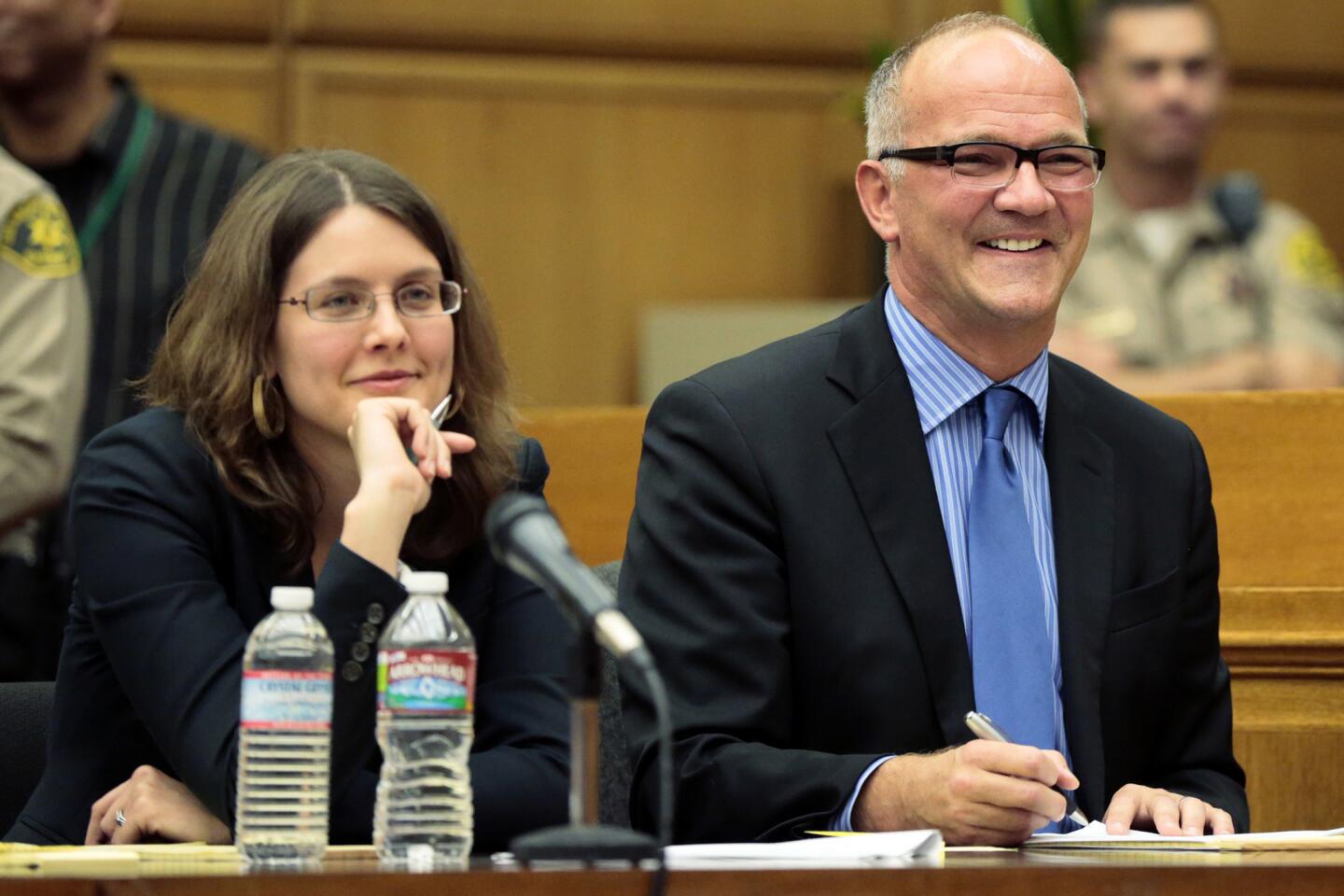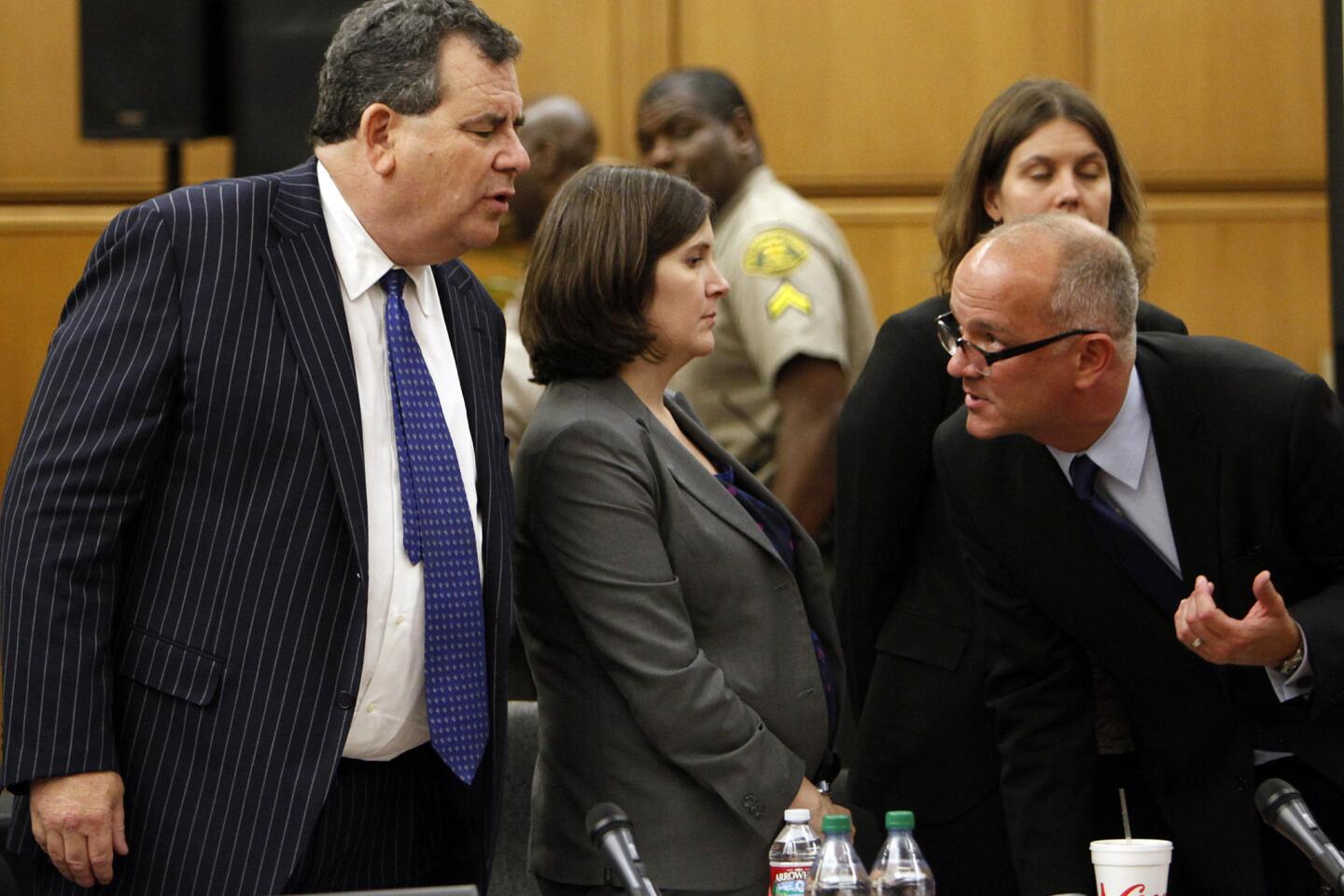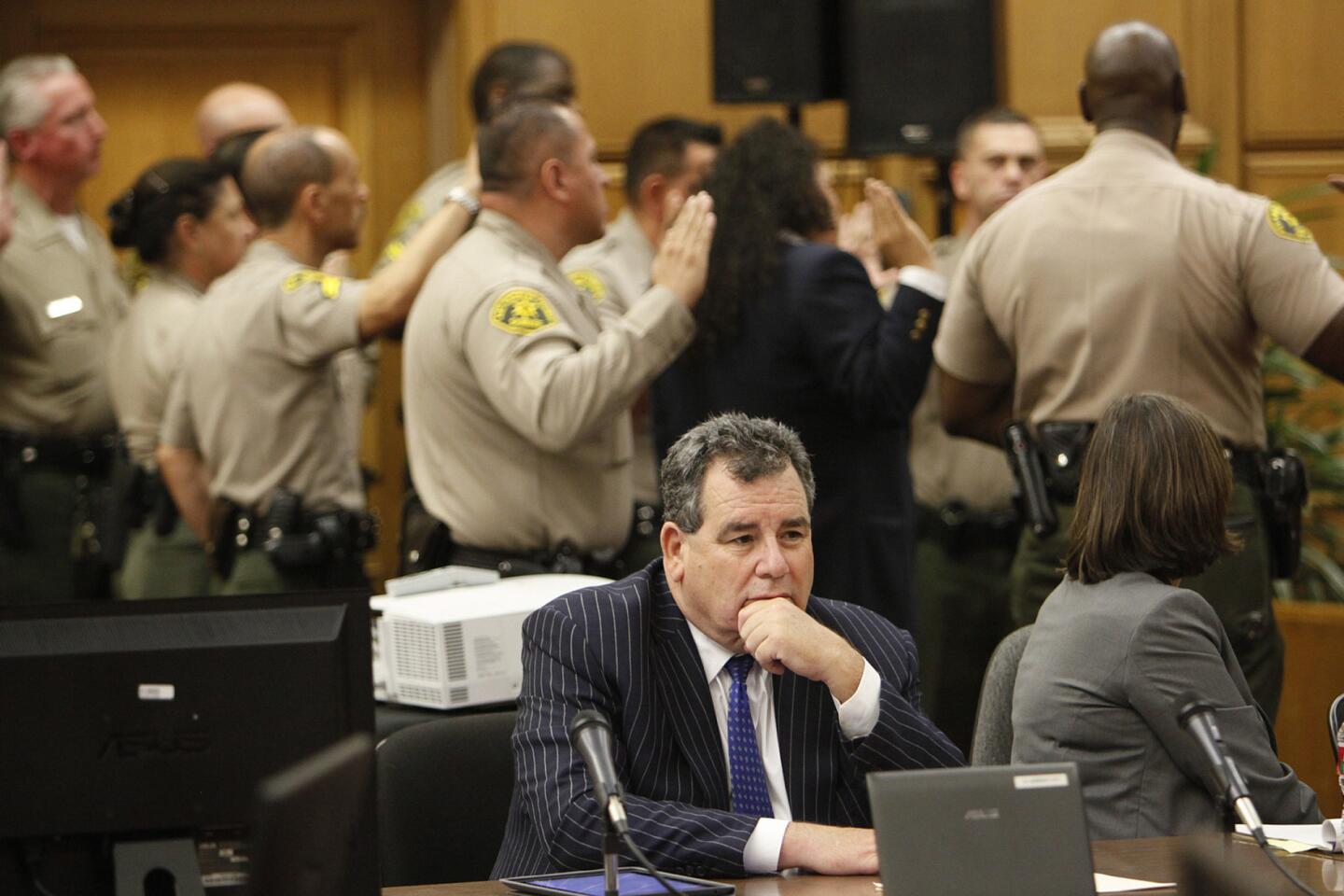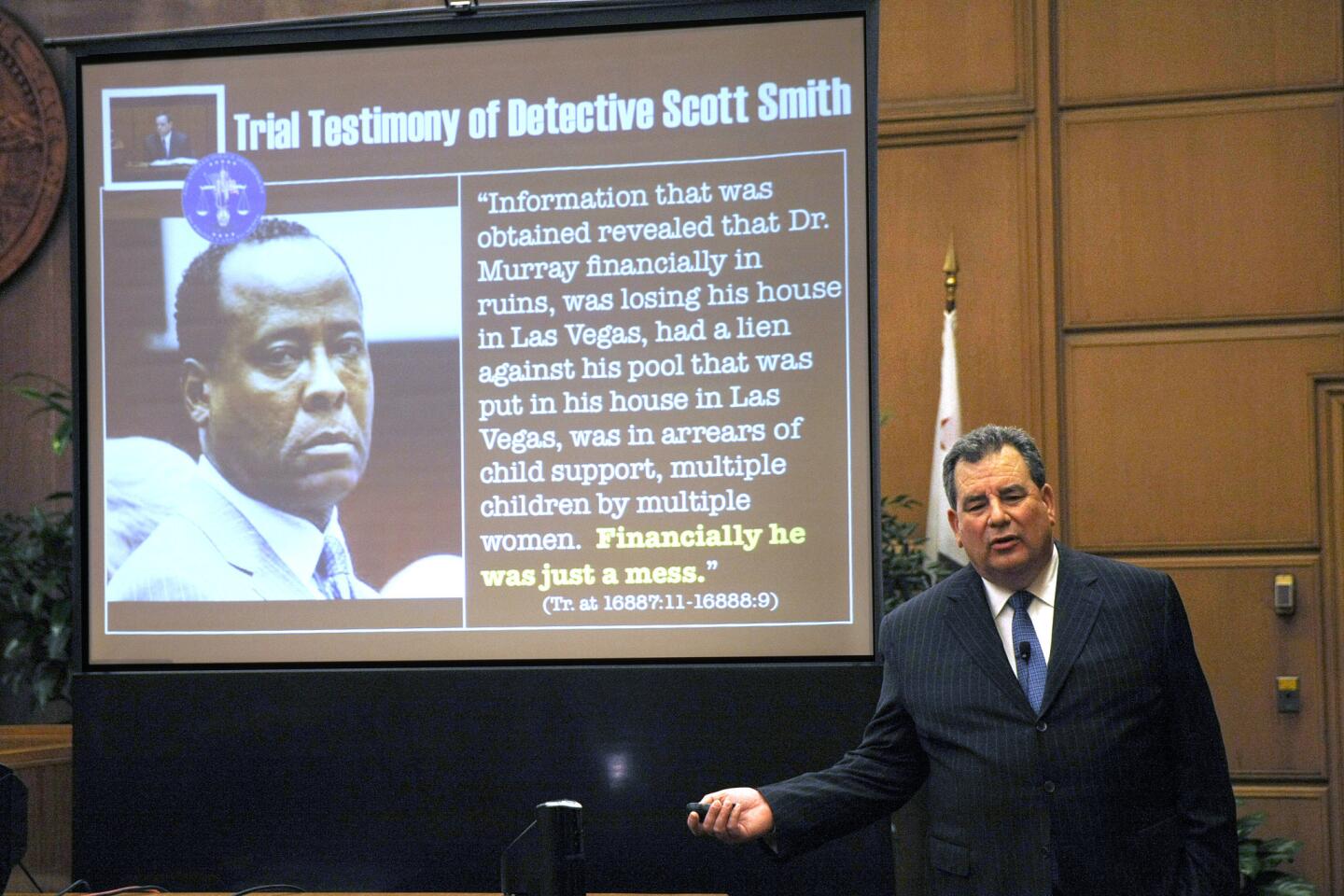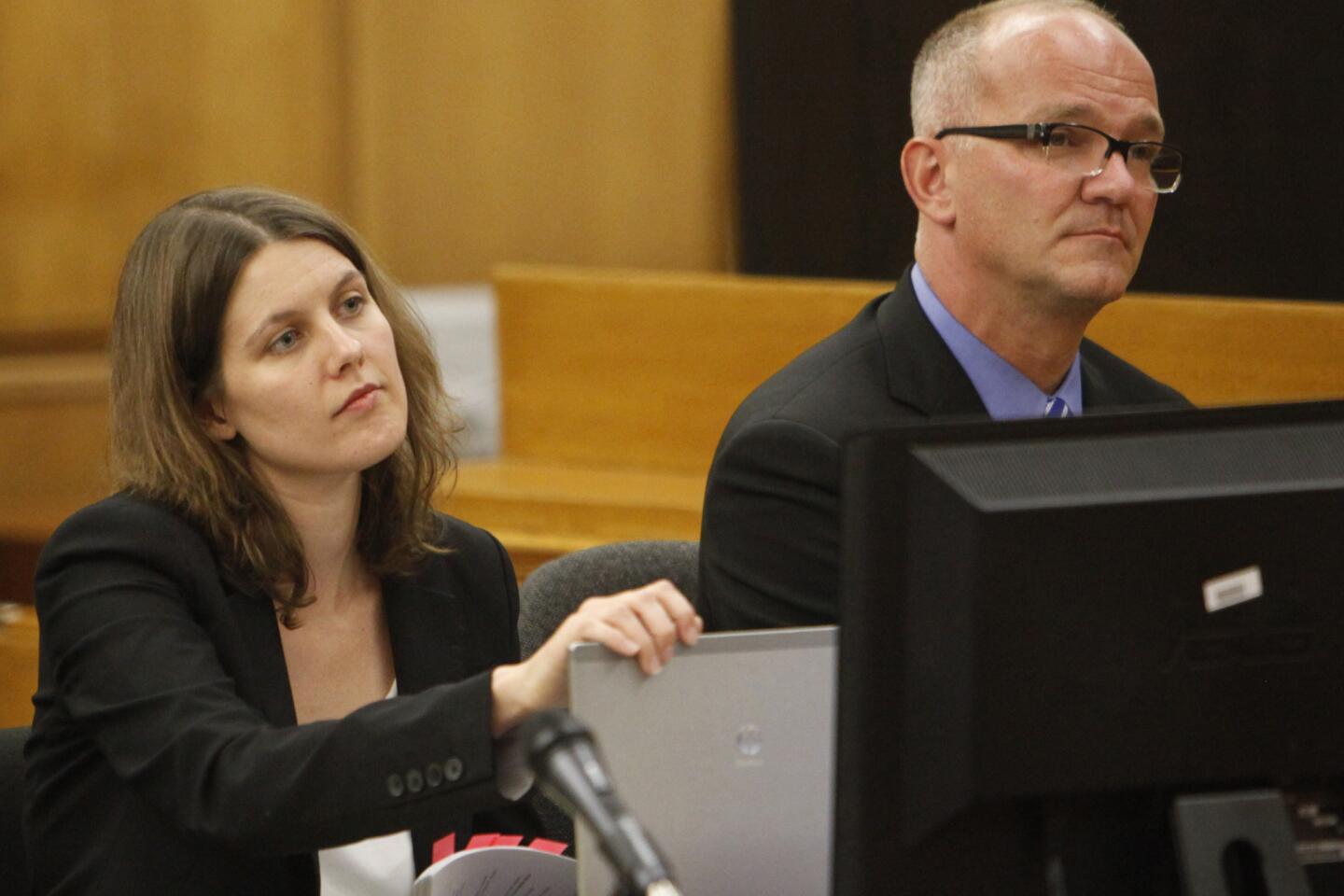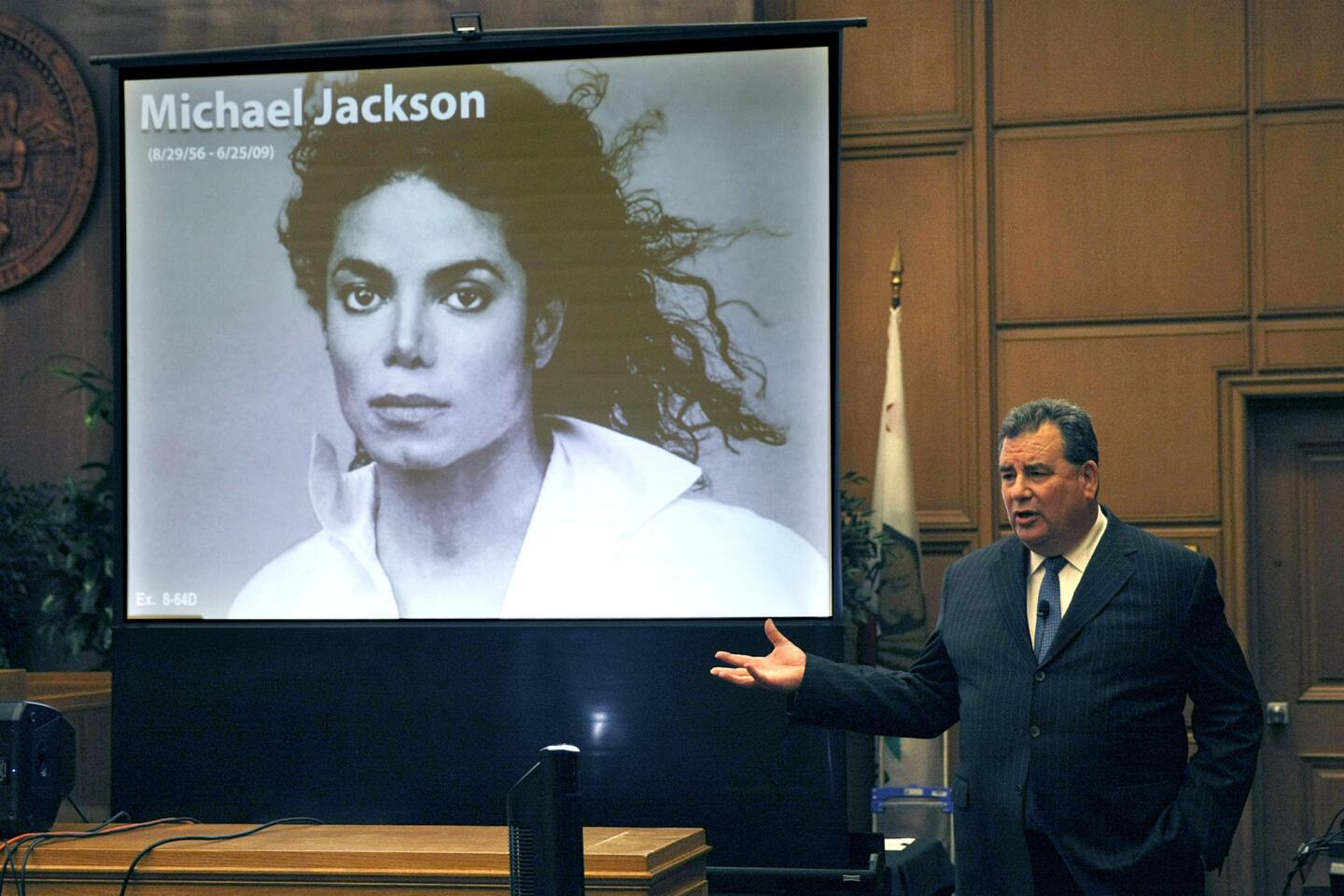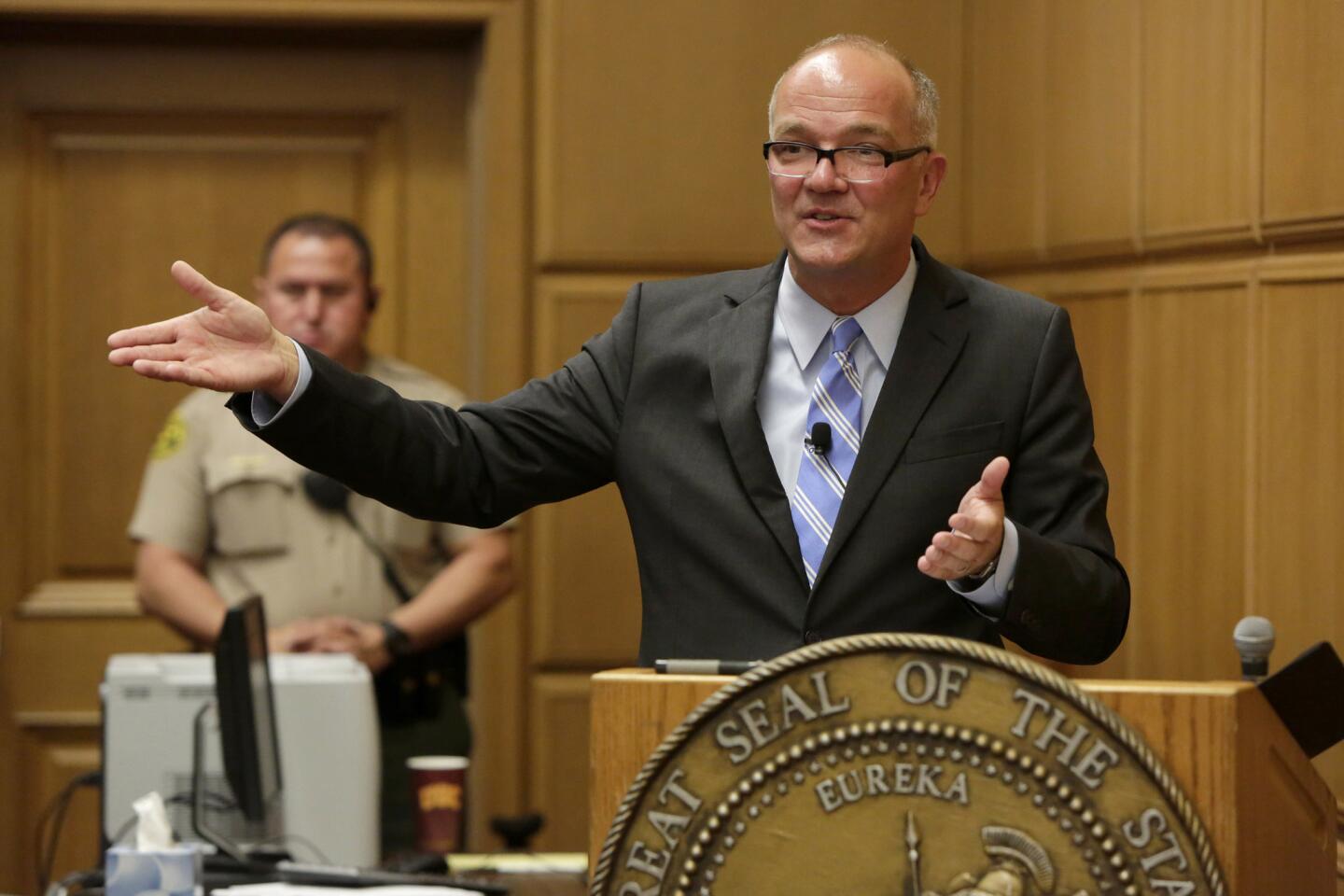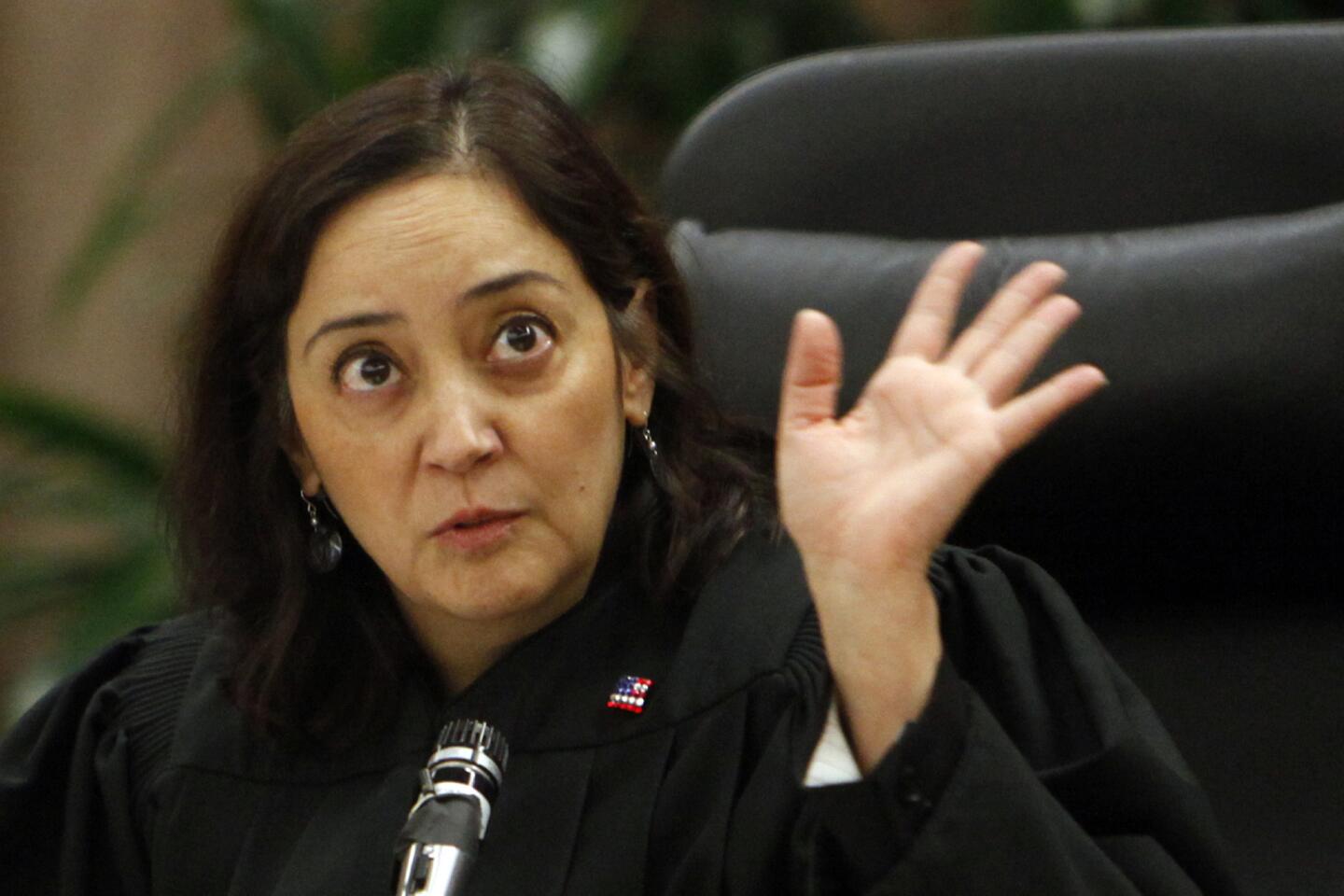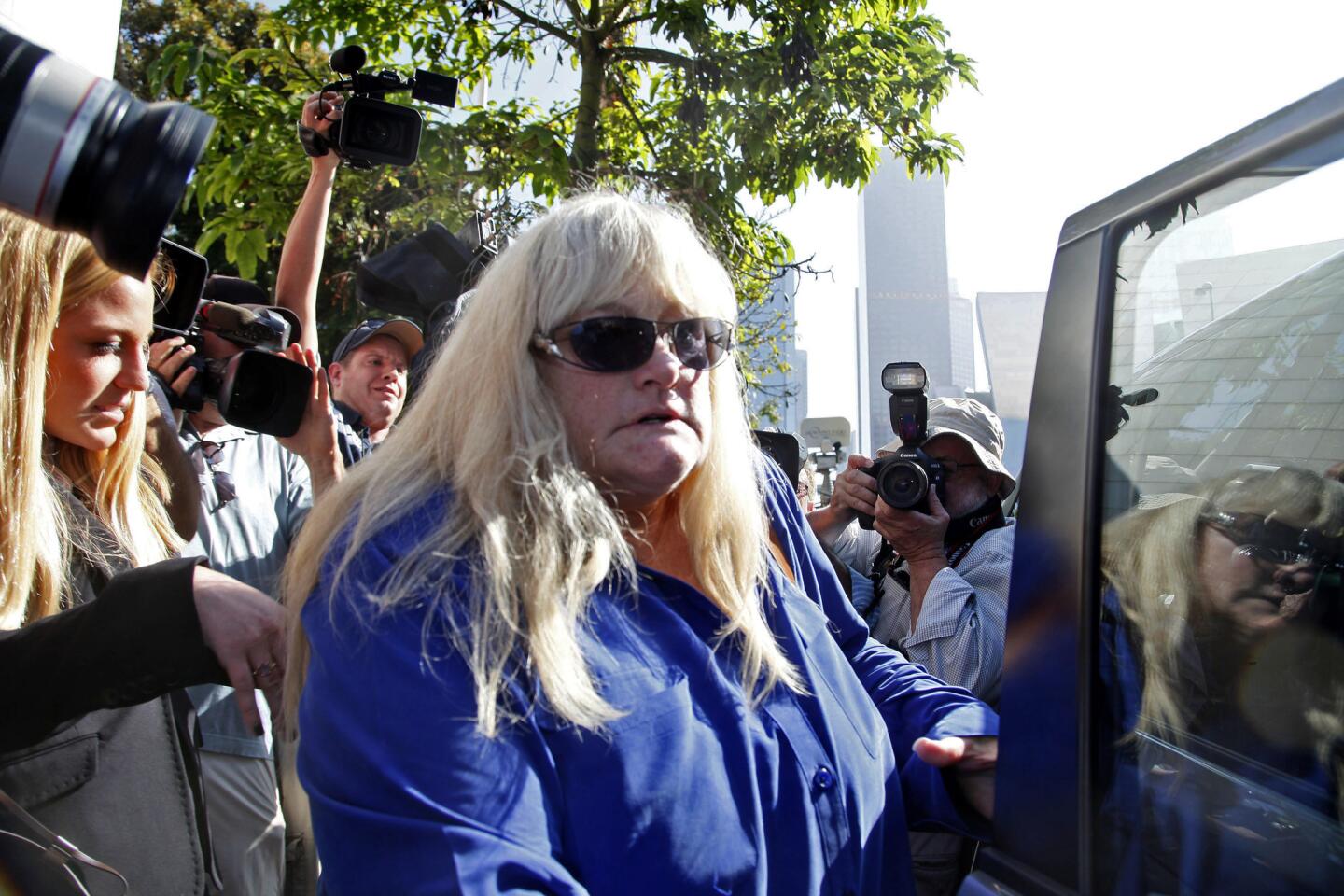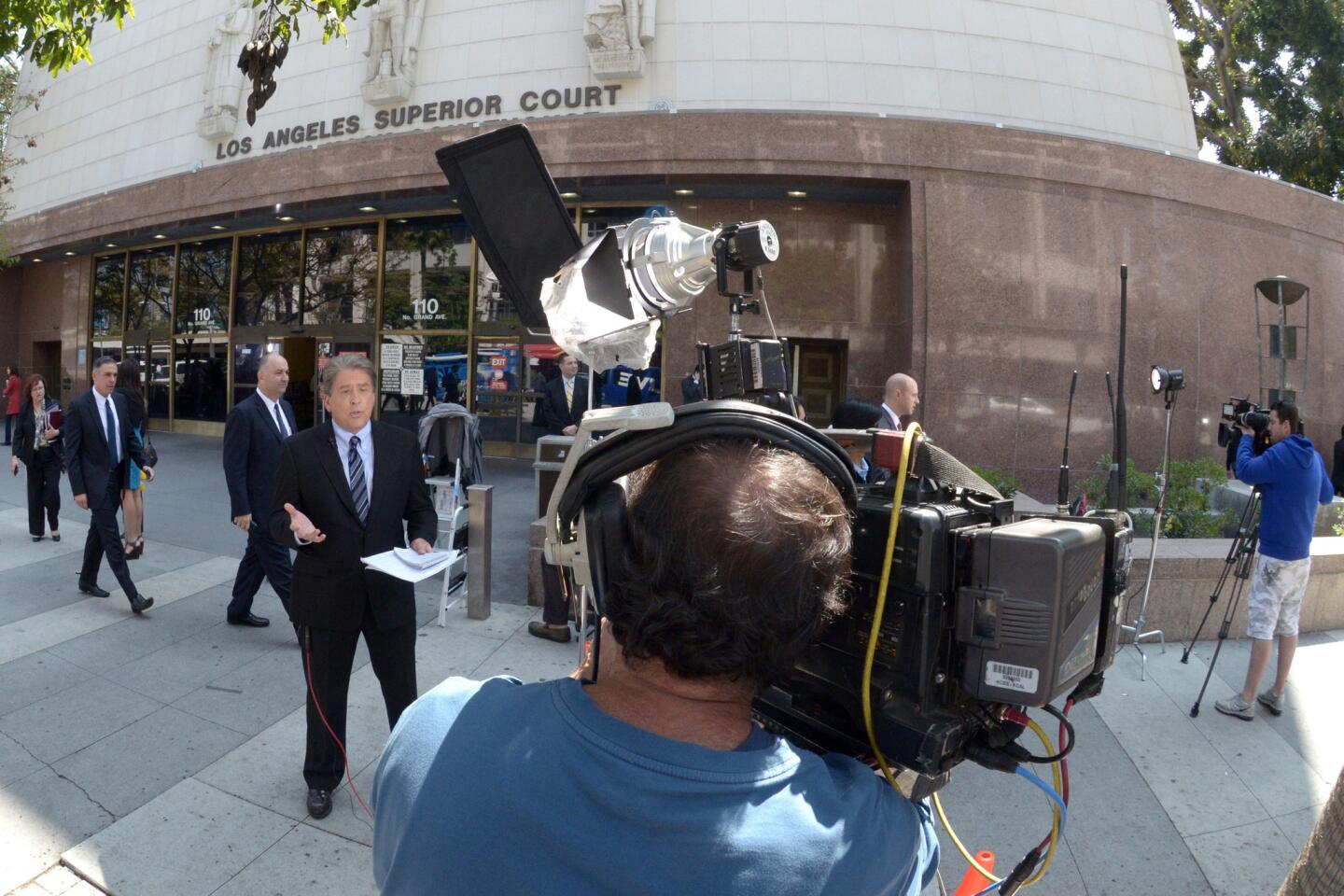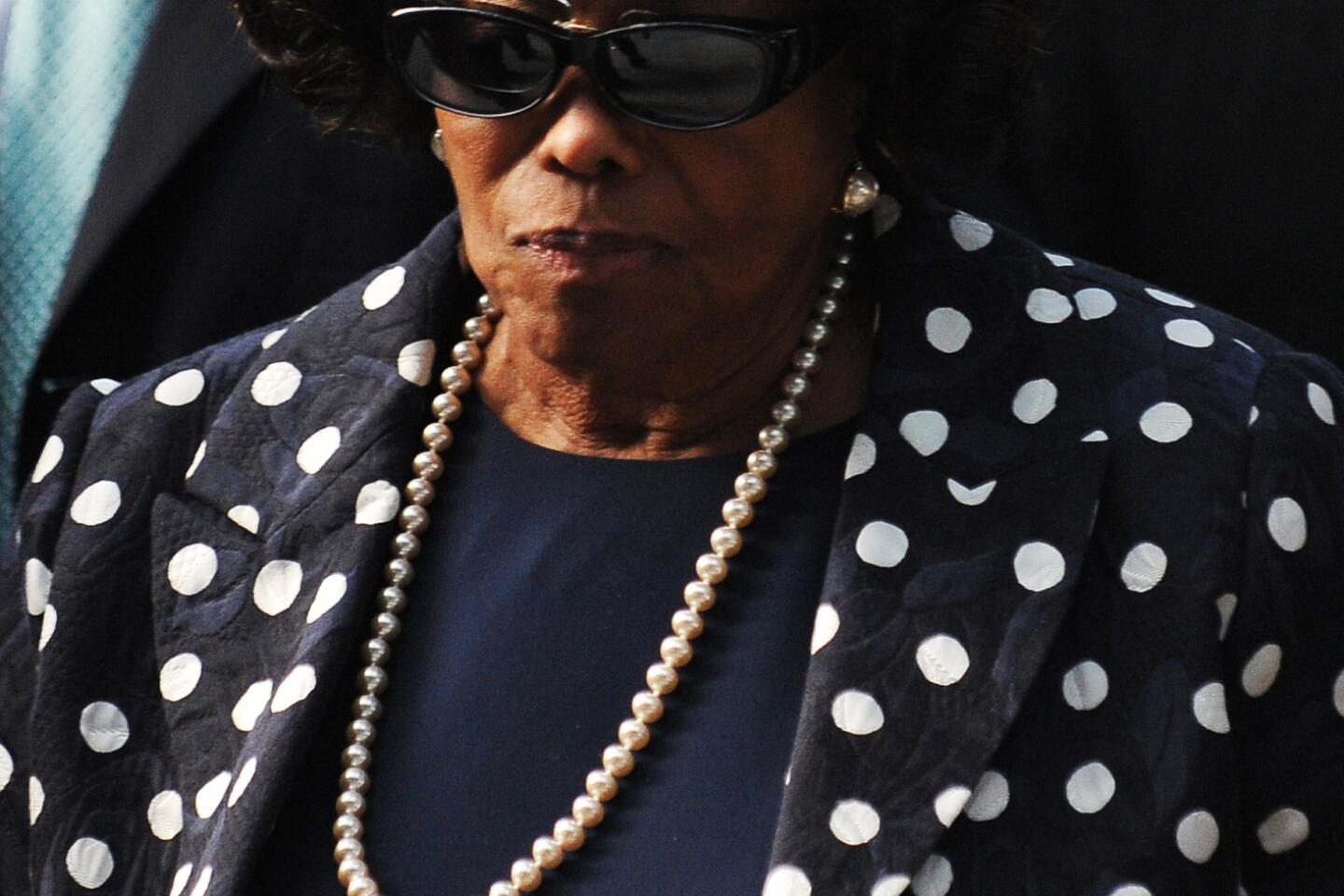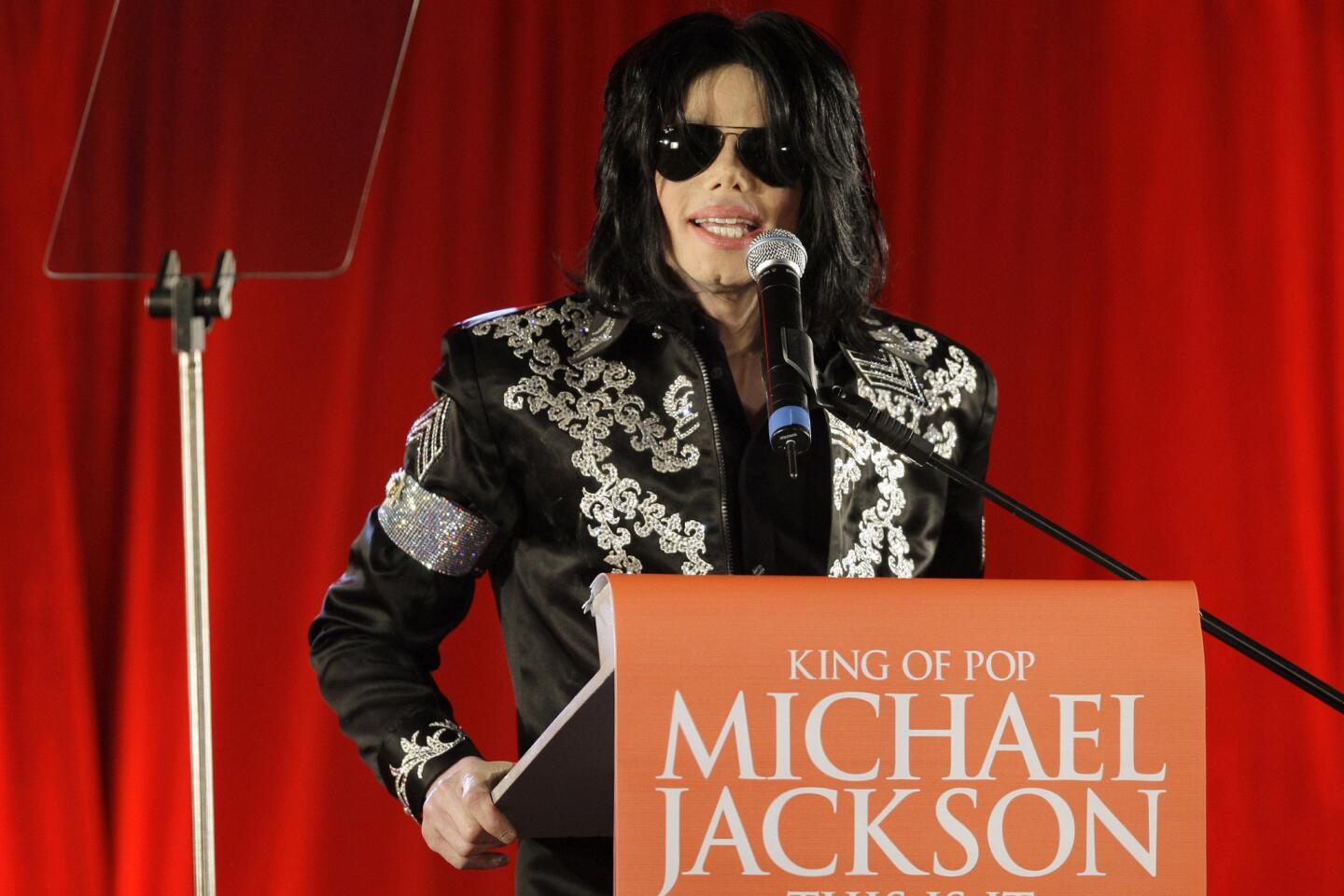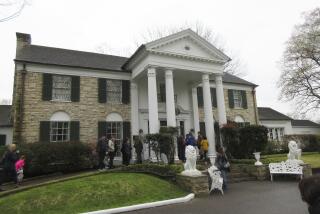Michael Jackson called ‘the freak’ in email from top AEG lawyer
An email shown to the jury in the Michael Jackson wrongful-death lawsuit revealed the top attorney for AEG called the pop star “the freak” before he signed multimillion-dollar contracts for his London concerts.
The revelation came during the last 15 minutes of court Wednesday and enlivened the day’s testimony in the case that Jackson’s mother and children have filed against AEG, the promoter of his comeback concert series.
The email was shown to the jury during the third day of testimony by Shawn Trell, general counsel and senior vice president for Anschutz Entertainment Group.
FULL COVERAGE: AEG wrongful death trial
Jackson attorney Brian Panish asked Trell about his visit to the singer’s house to sign the contracts. “It was exciting to meet Michael Jackson,” he said.
Panish built toward a climax, asking Trell if it were company policy to speak in derogatory terms about an artist it was about to sign to a huge deal.
“I may not have necessarily agreed with some of the life choices Michael Jackson made,” Trell said, “but I certainly had enormous respect for him as an entertainer.”
PHOTOS: Michael Jackson | 1958-2009
Panish asked Trell, “Did Mr. Fikre say to you that Michael Jackson was a freak?” a reference to Ted Fikre, chief legal and development officer and a member of the board of parent company AEG, before slowly unraveling the emails.
The email chain starts Jan 28, 2009, with AEG Live executive Paul Gongaware writing to Randy Phillips, president and chief executive of AEG Live: “MJ still on today?”
Phillips emails back. “Yes. 5 p.m. 100 Carolwood Dr. You and Shawn should be there,” referring to Trell.
Trell forwarded the email to Fikre, who replied two minutes later: “Does this mean you get to meet the freak?”
Trell replies: “Apparently. Not sure how I feel about that. Interesting for sure, but kind of creepy.”
Panish then scolded Trell as he sat in the witness box: “Didn’t your mother ever tell you if you don’t have anything good to say about someone not to say it?”
Asked outside court about the email, Jessica Stebbins Bina, an attorney representing AEG, replied, “I think it speaks for itself.”
The Jacksons are suing AEG, contending the company negligently hired and supervised Conrad Murray, the doctor who administered a fatal dose of propofol to Jackson in June 2009. AEG says that Jackson hired Murray and that any money the entertainment company was supposed to pay the doctor was an advance to the singer.
Murray is in jail after being convicted of involuntary manslaughter.
Earlier in the day, Trell testified that he had been told that Jackson passed a medical exam for an insurance policy “with flying colors” a few months before his death. A second insurance exam had been scheduled for July 6, 2009 -- about two weeks after Jackson died.
The exams were necessary so AEG could buy cancellation insurance for Jackson’s “This Is It” concerts.
Cancellation insurance, Trell said, is a typical way to recoup advances made to an artist when an event falls through. According to its contract with Jackson, AEG had advanced the singer close to $30 million.
Insurance carriers, however, were “skittish” due to tabloid reports about Jackson’s health, Trell said. Stebbins Bina said their concerns did not include drugs, painkillers, alcohol or sleep disorders.
In addition to the tour contract, Trell said Jackson and AEG had an agreement that proposed developing as many as three films together, one of which was related to his “Thriller” video.
When nothing was developed by the agreement’s June 1, 2009, deadline, AEG sent a proposed amendment to extend that date to Jackson’s representatives, Trell said.
“I think the interest was still there on Mr. Jackson’s side, and I know we were interested in helping him realize what he wanted to accomplish,” Trell said.
ALSO:
Man arrested in theft of Disneyland passes
USC, Berkeley mishandling sex crimes against women, Allred says
Glendora home searched for clues in woman’s 1978 disappearance
More to Read
Sign up for Essential California
The most important California stories and recommendations in your inbox every morning.
You may occasionally receive promotional content from the Los Angeles Times.
